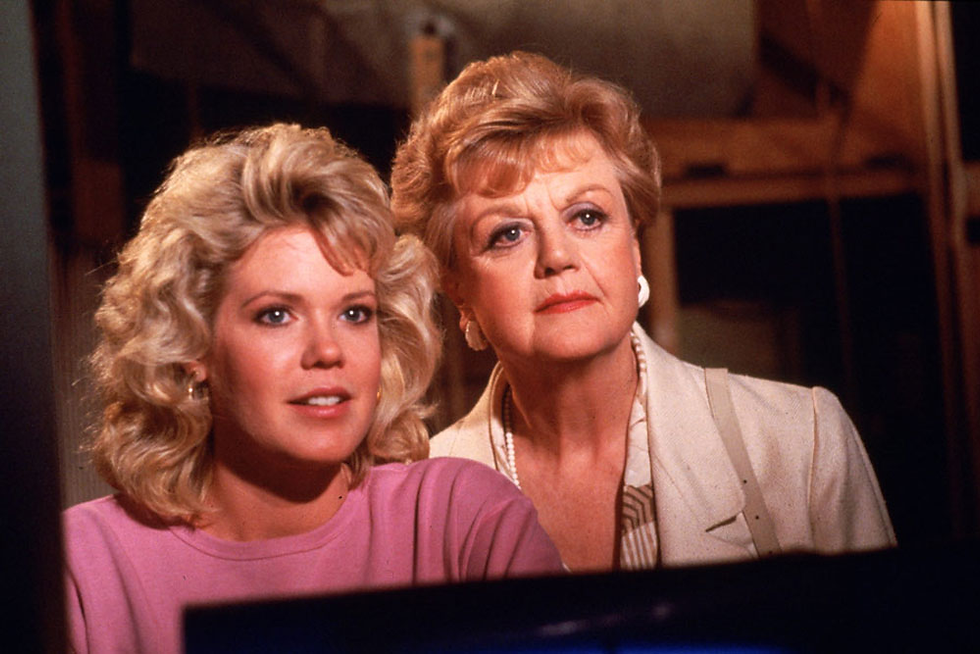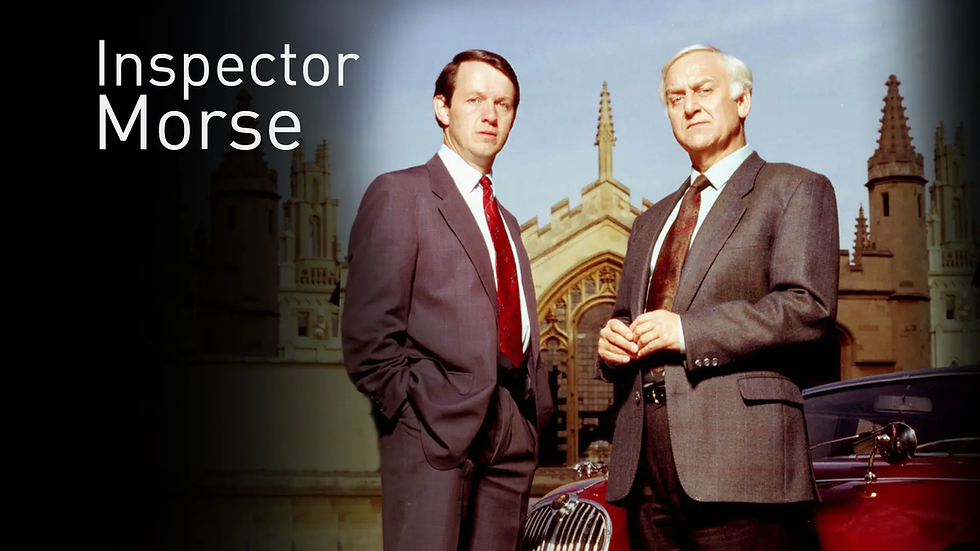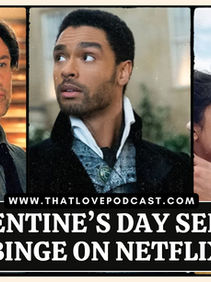The 10 Most Binge-worthy Detective Shows of the 90s
- Joao Nsita
- Aug 14, 2025
- 14 min read

The 1990s was a decade of profound change, a cultural and technological bridge between the analog past and the digital future. This transformation was vividly reflected on our television screens. It was the era of "Must-See TV," a time before DVRs and streaming when millions gathered simultaneously to share a collective experience. In the realm of the detective drama, this period was nothing short of revolutionary. The genre shed its more straightforward post-war skin and began to evolve, branching out into gritty, serialized realism, mind-bending speculative fiction, and sophisticated, character-driven procedurals that would lay the groundwork for the Golden Age of Television to come.
Looking back at the detective shows of the 90s is to witness the birth of modern television storytelling. On network TV, titans like Law & Order and NYPD Blue didn’t just solve crimes; they explored the complex legal and moral systems surrounding them, creating a new standard for realism. On the fringes, a show like The X-Files proved that a procedural could be a gateway to exploring deeper themes of faith, paranoia, and existential dread. And across the Atlantic, British television was producing prestige dramas like Prime Suspect that centred on fiercely intelligent, flawed characters who were as compelling as the mysteries they solved. This list is a celebration of that pivotal decade, a curated ranking of the ten most influential, groundbreaking, and eternally binge-worthy detective shows that defined the 90s and whose DNA can be found in nearly every crime drama on the air today.

10. Murder, She Wrote (1984-1996)
While its run began in the mid-80s, Murder, She Wrote was a dominant and comforting presence throughout the first half of the 1990s, making it an essential part of the decade’s television fabric. The series stars the legendary Angela Lansbury as Jessica Fletcher, a mystery writer and amateur detective living in the idyllic (and shockingly perilous) town of Cabot Cove, Maine. Everywhere Jessica goes, from her charming hometown to lavish international vacations, murder follows. Using her keen intellect, sharp observational skills, and disarming charm, she invariably outsmarts the local, often bumbling, police force to solve the case.
Murder, She Wrote is the undisputed queen of the "cozy mystery" subgenre. It is the ultimate comfort-food television, a show that is as gentle and reliable as its beloved protagonist. Each episode is a self-contained puzzle box, presenting a clever whodunnit that is always satisfyingly resolved by the final credits. The binge-worthiness of the show lies in its predictable but deeply comforting formula. You know Jessica will encounter a baffling crime, you know she’ll piece together the clues everyone else missed, and you know she will expose the killer with a quiet, confident flourish. Lansbury’s performance is a masterclass in grace and intelligence; she makes Jessica Fletcher feel like a dear friend. In an era of increasingly dark and gritty crime shows, the enduring appeal of Murder, She Wrote is a testament to the timeless joy of a well-crafted, good-natured mystery. It’s a show that feels like a warm hug, a perfect choice for when you want a break from more intense fare, much like some of the feel-good summer films of recent years.

9. Columbo (1968-2003)
Like Murder, She Wrote, the iconic Lieutenant Columbo’s television presence stretched across multiple decades, with a series of popular TV movie specials airing regularly throughout the 1990s. Peter Falk’s portrayal of the perpetually disheveled, cigar-chomping homicide detective is one of the most indelible in television history. Columbo perfected the "inverted detective story" or "howcatchem" format. Each episode begins by showing the audience the perfect murder being committed, usually by an arrogant, wealthy, and sophisticated killer. The rest of the runtime is a masterful game of cat and mouse, as the seemingly bumbling and absent-minded Columbo slowly but surely dismantles the killer's alibi.
The genius of Columbo is in its character and its structure. Columbo uses his unassuming appearance as a weapon, lulling his brilliant adversaries into a false sense of security. His politeness is a tactic, his famous "just one more thing..." a scalpel he uses to peel back the layers of their lies. The joy is not in guessing who the killer is, but in watching the slow, delicious inevitability of their downfall. The 90s episodes maintained this classic formula, proving its timeless appeal. Peter Falk’s performance is a marvel of physical comedy and subtle intelligence. He created a working-class hero who always brought down the powerful and arrogant, a theme of justice that resonates in even the grandest superhero tales, from the streets of Gotham to the world of the DCU's greatest heroes. Binge-watching Columbo is a deeply satisfying experience, a masterclass in mystery writing and character creation.

8. Inspector Morse (1987-2000)
Representing the very best of British prestige crime drama, Inspector Morse was a television institution. Based on the novels by Colin Dexter, the series stars John Thaw in a career-defining role as the erudite, melancholic, and crossword-loving Chief Inspector Endeavour Morse. Set against the stunning, intellectual backdrop of Oxford, Morse and his loyal, down-to-earth partner, Detective Sergeant Robert "Robbie" Lewis (Kevin Whately), solve complex murders that often involve the city's academic elite.
Each episode of Inspector Morse is a feature-length film, a slow-burn, atmospheric, and intellectually stimulating mystery. The show is famous for its intricate, multi-layered plots that demand the viewer's full attention. It’s a series that respects its audience's intelligence, weaving in references to classical music, literature, and history. But the heart of the show is the character of Morse himself. He is a brilliant detective but a deeply lonely and often cantankerous man, finding solace in Wagner, a pint of ale, and the challenge of a good puzzle. John Thaw’s performance is magnificent, capturing Morse’s genius, his vulnerability, and his deep-seated melancholy. The relationship between the cerebral, pessimistic Morse and the steadfast, good-natured Lewis is one of the great detective partnerships. For those who appreciate a thoughtfully crafted mystery, Inspector Morse is an essential and rewarding watch. It stands as a pinnacle of the genre, much as the best DC animated movies are remembered for their quality.

7. Homicide: Life on the Street (1993-1999)
Before The Wire became the critical gold standard, its creator, David Simon, first brought his journalistic grit to television with Homicide: Life on the Street. Based on Simon’s non-fiction book about the Baltimore Police Department's homicide unit, this show was unlike any cop show that had come before it. Shot with jittery, handheld cameras and often overlapping dialogue, it had a raw, documentary-like realism that was groundbreaking for network television. The series followed a squad of homicide detectives, focusing on the psychological toll the job takes and the dark, gallows humour they use to survive.
The show's greatest strength was its incredible ensemble cast, featuring standout performances from actors like Andre Braugher as the intense and cerebral Detective Frank Pembleton and Yaphet Kotto as the commanding Lieutenant Al Giardello. The interrogations, often referred to as "the box," were legendary scenes of psychological warfare. Homicide was less concerned with providing neat resolutions than it was with exploring the grim, often frustrating reality of police work. Cases would go unsolved, criminals would walk on technicalities, and the detectives were often left with more questions than answers. It was a dark, challenging, and profoundly human series that eschewed melodrama for authenticity. It may not have been a massive ratings hit, but its influence is undeniable, paving the way for the more realistic and complex crime dramas of the 2000s and beyond, including the fantastic detective shows of the 2010s.

6. Prime Suspect (1991-2006)
Another landmark British drama, Prime Suspect was a cultural event that shattered television’s glass ceiling. The series stars the formidable Helen Mirren as Detective Chief Inspector Jane Tennison, a brilliant and ambitious detective who must battle rampant sexism and institutional prejudice within London's Metropolitan Police as she rises through the ranks. Each multi-part series sees Tennison taking on a complex and often harrowing murder case, all while proving her worth to her resentful male colleagues and superiors.
Written by Lynda La Plante, Prime Suspect was a game-changer. It was one of the first mainstream detective dramas to place a complex, flawed, and utterly capable woman at its centre. Helen Mirren’s performance is iconic; she masterfully portrays Tennison’s steely determination, her sharp intellect, her vulnerabilities, and her righteous fury. The show is an unflinching look at the corrosive effects of misogyny and the personal sacrifices required of a woman determined to succeed in a man's world. The mysteries are always gripping and intelligently plotted, but the real drama comes from Tennison’s internal and external battles. It’s a powerful, brilliantly acted, and socially relevant series that remains as vital and compelling today as it was in the 90s. The show’s focus on a singular, powerful hero's journey is a theme that resonates across all genres, including the greatest arcs in the MCU.

5. Cracker (1993-1996)
While Prime Suspect gave us a groundbreaking female detective, Cracker introduced one of the most memorable and flawed anti-heroes of the decade. The British series stars Robbie Coltrane as Dr. Edward "Fitz" Fitzgerald, a brilliant but deeply self-destructive criminal psychologist. Fitz is an alcoholic, a chain-smoking, compulsive gambler whose personal life is in shambles. But in a police interview room, he is a genius, a man with an uncanny ability to get inside the minds of the most disturbed and violent criminals and "crack" their motivations, forcing a confession.
Created by the great Jimmy McGovern, Cracker was a dark, psychological drama that delved into the minds of both the criminals and the man hunting them. Fitz is a fascinating and often unlikable protagonist. He is arrogant, manipulative, and causes immense pain to his family, yet his insight into the human condition is profound. Robbie Coltrane’s performance is a tour de force, capturing Fitz’s brilliance and his immense self-loathing with equal measure. The show was unflinching in its depiction of violence and its exploration of dark psychological territory. It was a show that understood that the line between the detective and the criminal can sometimes be terrifyingly thin, a theme that would be explored further in the great detective shows of the 2000s.

4. NYPD Blue (1993-2005)
Created by Steven Bochco and David Milch, NYPD Blue was a television earthquake. It pushed the boundaries of what was acceptable on network TV with its gritty realism, coarse language, and frank depiction of violence and sexuality. The series followed the lives of the detectives in the 15th Precinct in New York City, but its heart and soul was the flawed, tragic, and unforgettable Detective Andy Sipowicz (Dennis Franz). A recovering alcoholic with a litany of prejudices, Sipowicz was a character unlike any seen before on television: a bigoted, angry, and often hateful man who, over the course of twelve seasons, embarked on one of the most profound and moving redemption arcs in television history.
NYPD Blue was a powerful ensemble drama, featuring fantastic performances from actors like David Caruso and later Jimmy Smits as Sipowicz's partners. The show’s shaky-cam style and overlapping dialogue, inspired by Homicide, gave it a raw and immediate feel. The weekly cases were always compelling, but the real draw was the rich, serialized personal lives of the detectives. We saw them struggle with addiction, divorce, loss, and the immense psychological weight of their job. At the centre of it all was Franz's Emmy-winning performance, which found the wounded humanity beneath Sipowicz's gruff exterior. It was a show that was controversial, groundbreaking, and, at its best, a profoundly moving look at the capacity for change. The show's deep character work is a reminder that even the most flawed heroes can be compelling, a trait seen in many Marvel heroes' journeys.

3. Law & Order (1990-2010)
Dun-dun. That iconic two-note sound effect is instantly recognizable to television viewers around the world. Premiering in 1990, Law & Order created a formula so durable and perfect that it launched a media empire and is still running in various forms today. The show’s unique structure was its genius: the first half of each episode follows a pair of NYPD homicide detectives as they investigate a crime, and the second half follows the district attorneys as they prosecute the case in court. This "cops and lawyers" format allowed the series to explore a crime from two distinct and fascinating angles.
What makes Law & Order so endlessly binge-worthy is its "ripped from the headlines" plots and its focus on the case above all else. The personal lives of the detectives and lawyers were kept largely in the background, making the show remarkably easy to drop into at any point. It was a meticulously crafted procedural that respected the intelligence of its audience, often delving into complex legal and ethical debates with no easy answers. The show's revolving cast of characters, including iconic figures like Detective Lennie Briscoe (Jerry Orbach) and District Attorney Jack McCoy (Sam Waterston), became beloved fixtures in American culture. It is the ultimate procedural, a television machine that perfectly balanced compelling crime stories with thought-provoking legal drama, creating a legacy that is simply unmatched. The show’s impact is undeniable, sparking conversations much like the most talked-about Netflix shows of today.

2. Twin Peaks (1990-1991)
"Who killed Laura Palmer?" In the spring of 1990, that question captivated a nation and changed television forever. Created by the brilliantly surrealist minds of David Lynch and Mark Frost, Twin Peaks was unlike anything that had ever been broadcast on network television. The series begins when the body of homecoming queen Laura Palmer is found washed ashore in the seemingly idyllic logging town of Twin Peaks, Washington. The investigation is led by the eccentric but brilliant FBI Special Agent Dale Cooper (Kyle MacLachlan), a man who loves a "damn fine cup of coffee," cherry pie, and relies on dreams and Tibetan mysticism to solve his cases.
Twin Peaks was a bizarre and beautiful cocktail of genres: part detective show, part supernatural horror, part quirky small-town soap opera, part surrealist art film. Agent Cooper’s investigation peeled back the layers of the town to reveal a dark and strange world of secret societies, otherworldly entities, and a place called the Black Lodge. The show was funny, terrifying, and deeply weird, often all in the same scene. While the central mystery of Laura Palmer’s murder was eventually solved (reportedly due to network pressure), the show’s true power was in its atmosphere, its unforgettable characters, and its complete disregard for convention. It was a short-lived but profoundly influential series that demonstrated the artistic potential of television, proving that a detective show could be a vehicle for exploring the deepest and strangest corners of the human psyche. Its unique tone makes it stand out, even when compared to the boldest Netflix originals that redefined their genres.

1. The X-Files (1993-2002)
"The truth is out there." For nine seasons in the 1990s and beyond, The X-Files was more than just a television show; it was a cultural phenomenon. The series followed two FBI agents tasked with investigating the "X-Files," unsolved cases involving paranormal phenomena. Fox Mulder (David Duchovny) was the brilliant but obsessive "believer," driven by the memory of his sister's apparent alien abduction. Dana Scully (Gillian Anderson) was the "skeptic," a medical doctor and woman of science assigned to debunk Mulder's work. Their partnership is, without question, one of the most iconic in television history.
The X-Files brilliantly balanced two types of storytelling: the serialized, overarching "mythology" episodes that detailed a vast government conspiracy to hide the existence of extraterrestrial life, and the standalone "monster-of-the-week" episodes that served as mini horror movies. This structure made the show both a compelling, long-form narrative and an accessible weekly adventure. The chemistry between Duchovny and Anderson was electric, a deep, platonic (for most of its run) bond built on mutual respect and intellectual sparring. The show was stylishly cinematic, genuinely scary, and tapped into the post-Cold War anxieties and anti-government paranoia of the decade. It was a show that asked big questions about faith, science, and the nature of truth itself. For its incredible influence, its brilliant central partnership, and its perfect blend of procedural and serialized storytelling, The X-Files stands as the most binge-worthy and definitive detective show of the 1990s. Its exploration of complex conspiracies would feel right at home in a discussion of the MCU's new world order.
Conclusion
The detective shows of the 1990s were a crucible of innovation, forging the narrative tools and character archetypes that would dominate television for the next quarter-century. It was a decade that proved that a network procedural could be gritty, realistic, and socially conscious, and that a detective story could be a vessel for surrealist art, philosophical inquiry, or profound character study. From the comforting puzzles of Columbo to the systemic critique of Homicide, from the feminist fury of Prime Suspect to the existential paranoia of The X-Files, these shows pushed the boundaries of the genre in every conceivable direction. They gave us flawed heroes, unforgettable partnerships, and mysteries that were about so much more than just a body and a killer. They are the essential link between the old world of television and the new, and their enduring quality makes them as compelling and binge-worthy today as they were in the era of dial-up modems and "Must-See TV."
External Links
IMDb: Top TV Shows of the 1990s: Explore user ratings for the most popular shows of the decade.
Rotten Tomatoes: The 60 Best TV Shows of the 1990s: See the critical consensus on the best television of the decade.
The A.V. Club's "TV Club Classic": Find insightful retrospective reviews of shows like The X-Files and Twin Peaks.
The Official YouTube Channel for The X-Files: Watch clips, trailers, and behind-the-scenes content.
Wikipedia's List of Primetime Emmy Award winners for Outstanding Drama Series: See which shows from the era were critically recognized.
Esquire's "The 40 Best TV Shows of the 90s": A modern perspective on the decade's most influential television.
Rolling Stone's "100 Greatest TV Shows of All Time": A comprehensive list featuring many of the dramas from this ranking.
The New York Times "Watching" Section: Find modern articles and think pieces on classic television.
FAQs
Where can I stream these 90s detective shows? Streaming availability changes, but many of these classics are on major platforms. The X-Files and NYPD Blue are on Hulu. Twin Peaks and Prime Suspect are often on Paramount+. Law & Order can be found on Peacock. Others may be available for purchase on services like Amazon Prime Video or Apple TV.
Which of these shows are "case-of-the-week" and which are serialized? Murder, She Wrote, Columbo, Inspector Morse, and Law & Order are primarily episodic, with self-contained cases. NYPD Blue and Homicide blend procedural cases with serialized character arcs. The X-Files famously balanced "monster-of-the-week" episodes with its serialized "mythology." Twin Peaks and Prime Suspect are heavily serialized.
Are any of these shows still running or have they been rebooted? Law & Order was famously revived in the 2020s and is currently airing. The X-Files had two revival seasons in the 2010s. Twin Peaks returned for a limited series, Twin Peaks: The Return, in 2017. Many others have had their influence felt in spin-offs, like Inspector Morse's spin-off Lewis and prequel Endeavour.
What does "inverted detective story" mean? This is a story format, perfected by Columbo, where the audience sees the crime and the identity of the culprit at the beginning of the episode. The story's suspense comes from watching the detective figure out a mystery that the audience has already solved.
Which show on this list is considered the most influential? This is debatable, but three strong contenders are: The X-Files for its massive cultural impact and influence on sci-fi television; Law & Order for creating a near-perfect procedural formula that spawned a huge franchise; and NYPD Blue for pushing the boundaries of realism and character depth on network TV.
I like a good partnership. Which show has the best detective duo? The 90s was full of iconic duos. Mulder and Scully from The X-Files are arguably the most famous TV partnership of all time. Morse and Lewis from Inspector Morse offer a classic, cerebral pairing. The various partners of Andy Sipowicz in NYPD Blue were also central to the show's success.
Which show is the most "90s" in terms of style and themes? The X-Files perfectly captures the anti-government, conspiracy-minded zeitgeist of the 1990s. Its fashion, technology (or lack thereof), and themes are a perfect time capsule of the decade.
Why aren't shows like Seinfeld or Friends on this list? While they are iconic 90s shows, this list is specifically focused on the detective, crime, and mystery genres.
What is a "procedural"? A procedural is a type of television show that focuses on the process or procedure of a particular profession, most commonly police work or legal work. They typically have a formulaic structure and often feature self-contained, episodic stories. Law & Order and CSI are classic examples.
If I only have time to watch one show from this list, which one should it be? For a perfect blend of serialized mystery and episodic adventure that defined the decade's culture, The X-Files is the essential choice. For the absolute peak of gritty, realistic drama and character work, NYPD Blue is a must-watch.


























Comments